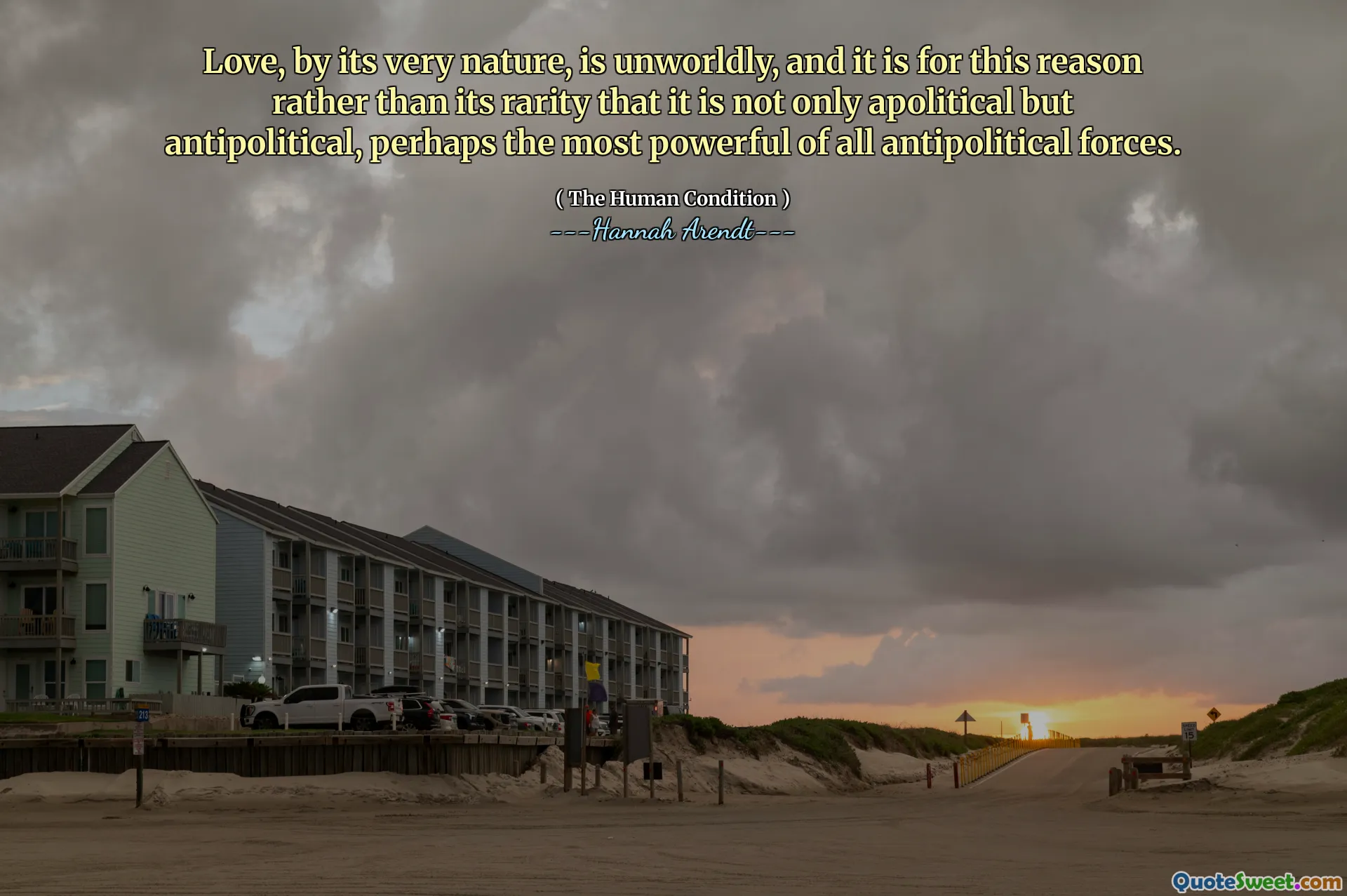
Love, by its very nature, is unworldly, and it is for this reason rather than its rarity that it is not only apolitical but antipolitical, perhaps the most powerful of all antipolitical forces.
Hannah Arendt's observation about love touches on a profound aspect of human existence. Love, as described, transcends the pragmatic and worldly concerns that often dominate political discourse. Its unworldliness implies a realm beyond the material and tangible—an elevation to a spiritual or moral plane where genuine connection and compassion reside. This quality makes love inherently antipolitical; it resists the mechanisms of power, manipulation, and territoriality that often characterize political systems. Unlike politics, which can be driven by self-interest, strategic alliances, and power struggles, love operates on principles of giving, understanding, and vulnerability. It does not seek dominance or control; instead, it fosters a shared humanness that can challenge and even undermine political hierarchies. However, Arendt suggests that perhaps its true power lies precisely in its apolitical nature—its ability to influence and transform people outside the formal structures of governance. Love's power is subtle but immense: it inspires empathy, moral courage, and altruism, qualities necessary for meaningful human interactions that can ultimately reshape societies from within. In witnessing both the limitations and the strengths of political entities, the recognition that love constitutes a force greater than many political ideologies offers a hopeful perspective. It reminds us that the most profound change often begins in delicate personal acts of connection, which can ripple outward and influence collective life profoundly. Love's antipolitical force is thus not a weakness, but a profound strength rooted in authentic human experience—one that sustains us beyond the superficial battles of the political arena.






